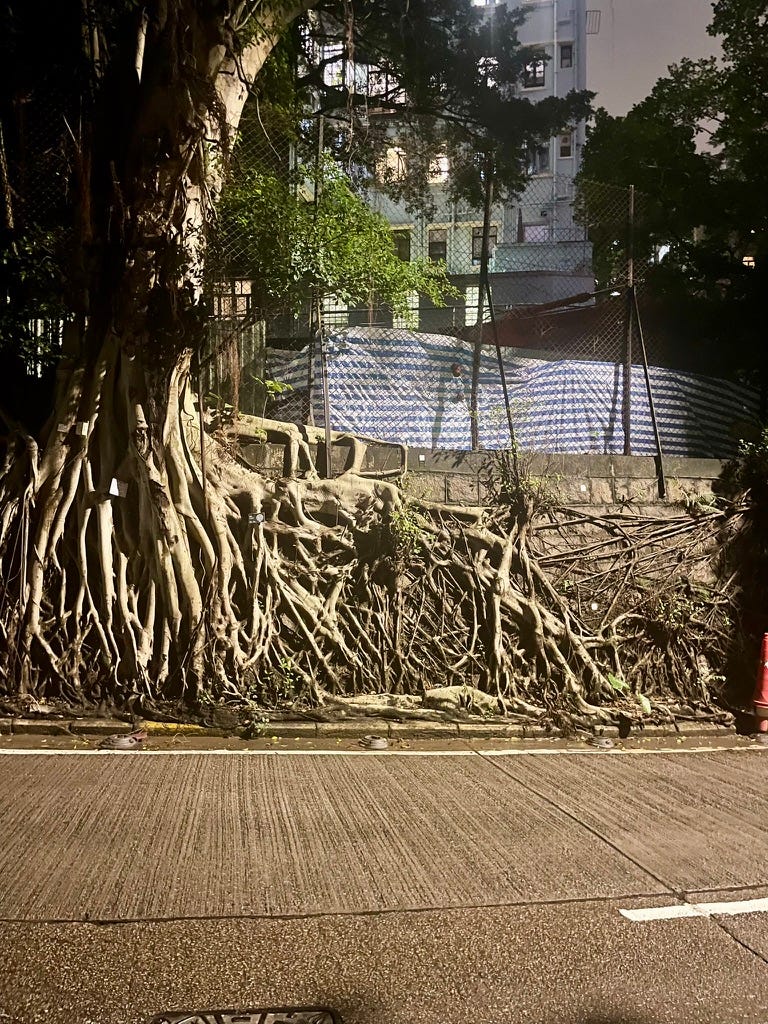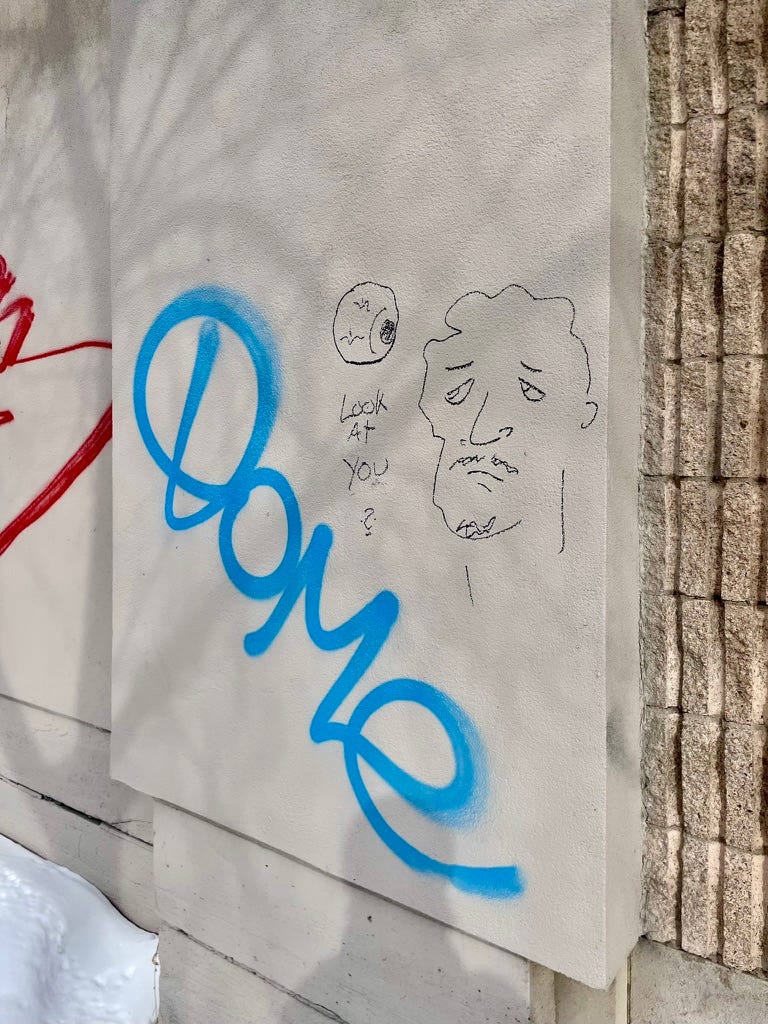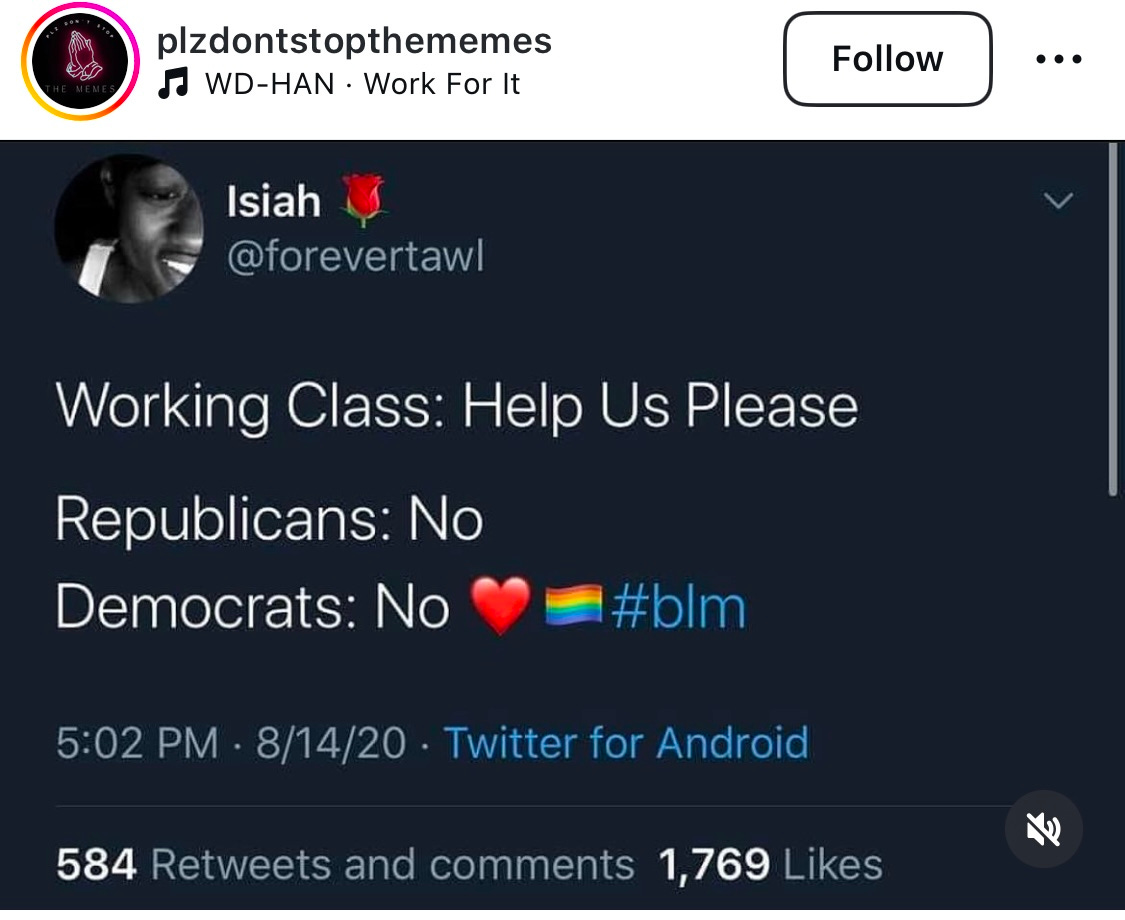The Grammar of Confidence
... and persuasive writing — plus read to the end for 3 tasty bites of pop culture
It’s Monday, February 10th. I’m going to be awkwardly honest with you: I’m fighting the urge to trauma dump.
I’m even fighting the urge to trauma dump about why I tend to trauma dump.
Truth is, I trauma dump when I’m afraid. I do it to fast-track emotional closeness with people when I admire them. I do this because I want to be accepted, and admired back.

In a recent episode of Worklife with Adam Grant, cancel culture critic and professor Loretta Ross said: “I'm not against people showing their vulnerabilities — but [do so] very selectively. And always be in control of when you show your vulnerability: don't let it seep out.” (These are words to live by.)
Loretta Ross knows a thing or two about vulnerability. She was tragically raped at 11, and then again at the age of 14 by a family member. She ended up having his child at 15. As she told Adam Grant, she never had the privilege of keeping her deepest wounds hidden.
I, too, have survived some atrocities in life.
And I’ve also experienced some incredible things.

Studying law was one of the most transformative decisions of my life. As soon as I started telling people I wanted to study law, they would cock their heads. They’d look at me with curiosity and a sparkle in their eye. I could feel their pride in me. I could almost hear their thoughts: She’s going to do great things.
Twelve years ago, I applied to McGill University — my top choice — and got in. One piece of writing I keep coming back to is the one that helped make it happen: my law school personal statement. I wrote it at 23, young and full of conviction, and I reread it about once a year. Even now, I’m proud as hell of that piece.
Caught within my statement is a sense of self that has long lain dormant. I have long felt split in two — one side on full display: the high-achieving, highly ambitious, driven part of me. Yet beneath that, beyond my trauma dumping for love and attention, lie the parts I keep hidden: the tender sides of me; the ones that have endured the most.
I’ll share more about this one day, but for now, I’ll say this: in 2023, I experienced severe burnout. I faced overwhelming stress and trauma compressed into a short period of time, which took a significant toll on my mental health.
The challenges I faced in this time taught me profound lessons about myself and humanity. My experiences even forced me to reassess my sense of self and my purpose in life. One of the most important changes that came from this time was my decision to stop hiding.
This is why I’m sharing my law school personal statement now — because it’s an act of courage that brings my selves together. And I’ll be honest: I’m scared. There’s a deep, unspeakable shame that comes with what I have endured. I’m scared that you’ll think less of me. Scared that speaking openly about my trauma might deter people from wanting to work with me. At worst, I fear it could be used against me by those with ill intent. But I’m choosing to share it anyway.
Sharing my statement was a result of and a catalyst for my decision to start this publication. I knew it was essential to break it down — so you, dear readers, could learn from my (admittedly excellent) persuasive writing.
Let’s Read the Thing Already
Hold your horses, folks — first things first! Actually two things: Below, you’ll find my personal statement👇🏼
Second, within my statement, you’ll encounter sensitive topics, including sexual violence and references to the criminal justice system. More specifically, it addresses incest, and sexual abuse by a family friend. Please read my personal statement with care.

For those who read my statement — woof. Whether you skimmed, perused, or dove in deeply, thank you. I hope my piece left you with a deep sense of hope and a renewed appreciation for your own resilience — the incredible strength within you that has carried you through life’s storms and calamity.
Let’s get our hands dirty and dig in. Let’s break down what makes this a powerful piece of persuasive writing.
At the outset, it’s worth sharing that I believe that the best writing — and art — is intentional about its impact. I also believe that the best art allows room for multiple interpretations.1 In this case, the goal of my writing is clear: I wanted to get into McGill’s Faculty of Law.
I’ve put together 10 compelling techniques to enhance your persuasive writing — whether you're crafting nonfiction or even fiction.
These tips are excellent for any kind of persuasive writing that’s trying to tell a good story and convince someone of something. They’re useful of course for school-related personal statements — but you can apply these tips to writing for cover letters, PR campaigns, grant applications, and more!
As we explore this list, you’ll notice I also break down ⛓️ the choices I made while writing my personal statement, giving you a real-time look at these techniques in action.
10 Essentials for Powerful Persuasive Writing
Know Your Reader. Define your audience and understand what drives them. Tailor your writing to their interests and needs. In my case, I knew law school admissions officers sift through thousands of pages to read, so I started my piece off with a bang.
Identify Your Core Problem or Question. Excellent persuasive writing highlights a gap and fills it. Personal statements, for example, answer a fundamental question: Why should we accept you to this program?
Pinpoint What’s Exceptional. Great persuasive writing delivers clear, confident key messages. There was no way in hell I was going to live a life without getting into McGill Law, and I made sure my statement reflected that. I demonstrated how my experiences set me apart and why McGill was the perfect fit.
Tell a Story with a Beginning, Middle, and End. No matter the genre, compelling writing has a narrative arc. Law school taught me that the strongest arguments need to come first. And the best nonfiction challenges assumptions — often proposing a completely new way of thinking. My statement flipped the script on pity, showing how I had already overcome obstacles rather than being defined by them.
Develop a Distinct Voice. Tone and voice make writing memorable. This takes practice, but it’s worth it. My statement is resilient, determined, and aspirational, striking a balance between emotional depth and strategic advocacy.
Do Your Research. Back up your claims with strong evidence. I highlighted why McGill Law was my ideal school and made it clear how their investment in me would further my national and international human rights advocacy.
Infuse Your Story with Humanity. Emotion makes writing powerful. The best storytelling — whether in writing, photography, or film — taps into deep, universal feelings. Dutch photographer Robin de Puy masterfully weaves emotion into her work, and I aimed to do the same by reliving vivid, emotionally charged scenes.
Have Fun! Take joy in the creative process 🎨 Take pleasure in it; revel in it. Put on good music. Experiment. And if you can infuse humour into serious writing, this is a sign of real skill. I had a ton of fun crafting my personal statement and am refining the art of sharp, biting humour in my personal writing — no matter the subject.
Seek Feedback. Great writing doesn’t happen in isolation. Get trusted eyes on your piece and incorporate the best feedback. I had 10-15 friends and family members review my personal statement, which, in my humble opinion, helped refine it to near perfection 🙏🏼
End Strong. A memorable ending often ties back to the beginning, reinforcing your message and deepening the emotional connection with your reader. Structurally, end your sentences with the most important ideas and keep verbs near the end to create momentum. My statement circled back to early statistics on how few foster kids make it to university, ensuring a powerful, resonant end.
Sigh of relief. *Wipes hands, tsks with delight*
We did it, folks! This is a fabulous list for anyone wanting to get better at persuasive writing. I’m so incredibly proud of my personal statement, which deftly weaves my story of resilience into a compelling argument for why I belonged at McGill’s Faculty of Law. (And I hope I’ve also made folks at McGill Law proud!)
And before we wrap up, dear readers, I’ve got three more things to share with you. I’ve put together an annotated version of my personal statement for you, highlighting the structure and content of my piece for you to learn from ☺️
And before getting accepted to McGill law, I did a free LSAT training program at University of Toronto for low-income (aka poor) students like me. As part of that program, we received guidance on crafting law school personal statements specifically. The advice they gave was invaluable, and you can check out those tips here.
3 Tasty Pop Culture Bites
Each month, I share 3 things I love. This month, we’re focused on pop culture tings that slap that I know you’ll adore too:
Who’s seen The Substance? Did you love or hate it? I loved it and found it brilliant — though I have to admit, the gallons of blood at the very end were just a wee bit over the top.
Speaking of body horror and identity crises, I just reread Upgrade Soul, a brilliant graphic novel by Ezra Claytan Daniels that explores similar themes. No matter how you felt about The Substance, I think you’ll love this one. (It’s even being made into a feature film.)
The story follows an aging mixed race couple, Hank and Molly Nonnar, who undergo a cutting-edge DNA rejuvenation experiment — only to find their “upgraded” clones are intellectually and physically superior but grotesquely disfigured. It’s a chilling meditation on identity, self-worth, transhumanism, and how far we’ll go to chase youth.I’m also obsessed with the album — It’s So Over — the January 24, 2025, rerelease from East London electronic artist Tatyana.
Tatyana’s glistening, driving beats are irresistibly danceable — melding 80s pop bops, the raw new wave energy of bands like The Clash, and the deep, percussive bite of Scottish hyperpop queen Sophie.
Filled with fun remixes by electro acts like British punk-infused trio PVA, this is probably THE best album I’ve heard recently that has the pulse on what modern dating feels like in 2025. (“We’re just two narcissists / circling each other” is a line from the track Down Bad that you can’t forget.)A friend in Paris recently shared this oldie but a goodie with me. It adds useful and delightful fuel to the already enormous political trashfire that is the US:
That’s it for this month, my dears. I hope I didn’t trauma dump too hard here.
Please share this with anyone else you know looking to level up with persuasive writing, and if you haven’t already, please do subscribe now — future you will be so glad you did 🌞
With warmth, and until next time,
Yuan
My friend Matt Goerzen’s masters thesis at McGill University explored what he called ‘critical trolling’, and uses the notion of agonistic politics to explore the moral and political ambiguity of art like memes.







